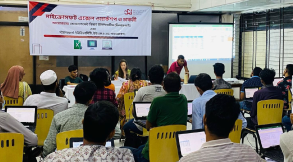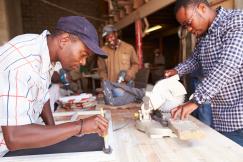We examine how cultural proximity shapes production networks, and how it affects aggregate welfare and productivity. We combine a new dataset of firm-to-firm trade for a large Indian state with information on cultural proximity between firms derived from India’s caste and religious classifications. We find that larger cultural proximity between a pair of firms reduces prices and fosters trade at both intensive and extensive margins. We argue that these results are driven by increasing trust between firms due to their cultural proximity, which in turn solves contracting frictions. Guided by these stylized facts, we propose a quantitative firm-level production network model, where cultural proximity influences trade and matching costs. We derive estimable equations from the model and estimate the model parameters leveraging variation in the cultural group composition of firm owners. We quantify the welfare and productivity consequences of implementing social inclusion policies that shape the formation of production networks. Our counterfactual exercises indicate that social inclusion policies can raise welfare by as much as 1.76%, while social isolation lowers welfare by 1.45%. Reducing contracting frictions increases welfare by 0.87% via the channel of trade becoming less reliant on cultural proximity.
STEG Working Paper Series
• Research Theme 1: Firms, Frictions and Spillovers, and Industrial Policy,
Cross-Cutting Issue 3: Inequality and Inclusion
Cultural Proximity and Production Networks

Related content















































































































